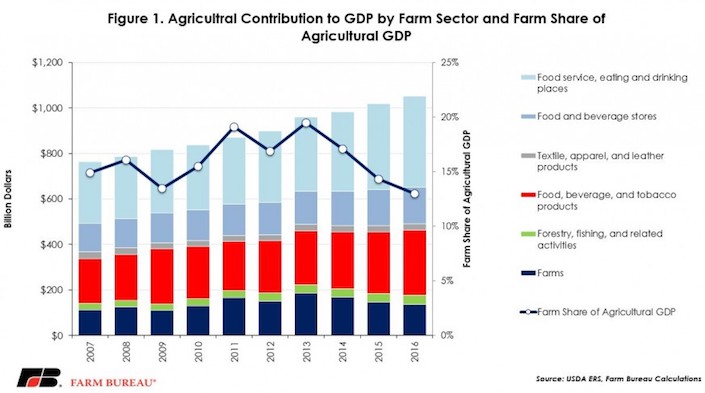[vc_row][vc_column][vc_column_text]As we have talked about before, entrepreneurship is a really difficult enterprise. It involves raising money (usually more than you think), relentlessly selling, new product development, relentlessly selling, developing quality control processes… Did I mention relentlessly selling?
These are a lot of things for one person to learn how to do well. Imagine if you as an entrepreneur tried to help everyone understand what needed to be done to make the business succeed. How do you even go about having that conversation and leading that charge?
One strategy that some food entrepreneurs employ is open-book management. Open book management is essentially sharing the company’s finances and key financial drivers openly with managers to increase their buy-in and understanding of the company’s performance. By sharing company finances and expecting financial literacy of managers, open-book management allows multiple leaders to use the same language and work towards the same goal. The differences between overall profitability and profit margins by department become clear when discussed in a context the managers know and understand. Using a common set of financial statements allows managers to have more meaningful conversations because they can point to specific items on those statements when discussing possible courses of action.
Open-book management can even drive growth because the managers’ and the organization’s goals are more easily aligned. On our podcast this week, Nicole Sallaberry talked about how the Great Basin Community Food Co-op started as a buying club in the back of a punk record store but now has about $4.5 million in annual sales. This growth has allowed them to hire more staff and get more healthy and local food into their store. To help them understand what they need to do to grow, department managers meet weekly to discuss benchmarks and financial goals as part of their management responsibilities and so department managers can be groomed for positions of higher leadership.
Like shared governance (another feature of food co-ops), open-book management is a huge commitment. It means helping managers improve their financial literacy and training them on how to use financial statements and internal/external benchmarks to inform decision-making. The need for education and technical assistance around this topic shouldn’t be underestimated. But, under the right circumstances, open-book management can create more aligned and optimized food businesses that are profitable for the long term.
And now, our roundup of the best food and beverage finance news, events and resources from around the web…
 Business Model Insights
Business Model Insights
- The 3 things you should be doing to support your company’s growth (New Hope Media) – “If you are a founder or co-founder of an emerging food and beverage brand and you are not engaged in one or all of the following activities—preparing to effectively raise capital, growth hacking, or developing execution excellence and accountability—you are in trouble. For it is these three activities that deliver growth in a manner that is both scalable and investable.”
- Fast Food’s Biggest Competition May Now Be the Grocery Store (Food Institute)
- How the heck should you market your natural foods company? (New Hope Media)
 Raising Capital
Raising Capital
- If your brand is seeking capital, it needs good answers about its distribution strategy (New Hope Media) – “While the internet has made it possible for brands to come out of nowhere and find success, it hasn’t made raising capital simpler for entrepreneurs in the natural products space. Investors want to see a great product, but they’re also going to ask for a detailed plan on how to market it online. Putting that pitch together is complicated, and evaluating the answers can be just as difficult. In a world that evolves with every new point and click, both investors and brands are left to make sense of what consumers are buying, where they’re buying it and where they expect to be parking their virtual and actual shopping carts next.”
- Unsecured Business Funding for Small Business Owners Explained (SBA Blog)
- Communicating with Your Investor (Entrepreneurship.org)
 CPG/National Brands
CPG/National Brands
- Are challenger food & beverage brands living up to their early promise? (Food Navigator USA) – “US packaged food companies have been frantically buying up new challenger brands at escalating deal multiples to offset the weakening sales trends in their core businesses. But success rates have been hit and miss, with several high profile acquisitions losing momentum in 2017/18.”
- How to level the playing field on Amazon (New Hope Media)
- Positive Signs Ahead for the CPG Industry (Food Institute)
 Market Trends
Market Trends
- Product transparency driving sales growth in consumer goods (FoodDive) – “Consumers look for transparency in three key attributes when it comes to making food purchases in the fast-moving consumer goods arena: sustainability, processing claims (such as organic or natural) and ingredients. With access to a lot of information, shoppers can be selective and look for products and services that meet their specific needs.”
- Fresh and fermented: Organic beverage growth bubbles over in 2017 (New Hope Media)
- Specialty foods sales surge to record $140.3B in 2017 (FoodDive)
Farming and AgTech
- Farm Contribution to Agricultural GDP at Record Low (Farm Bureau) – “On a broad level, agriculture contributed a record-high $1.05 trillion to U.S. gross domestic product in 2016, up $35 billion, or 6 percent, from the prior year. U.S. GDP in 2016 was $18.6 trillion, thus agriculture’s contribution represented 5.7 percent of the U.S. economy. However, as a direct result of falling commodity prices, in 2016, the contribution of farm production to U.S. GDP fell to $136.7 billion, down 6 percent from 2015, and the lowest level since 2010. Importantly, farm-level GDP is down nearly 30 percent from the 2013 record of $187 billion, and after declining for three consecutive years, the farm share of agricultural GDP, at 13 percent, is at the lowest level since the series was first recorded in 2007.”
- A Shifting Safety Net For Dairy Farmers Facing Uncertain Milk Prices (WisContext)
- Tips for Better Decision Making and Execution (Compeer Financial)
 Deals/M&A
Deals/M&A
- CPG in trouble: Can solutions be found in corporate venturing and startups? (FoodDive) – “In an effort to protect their venture funds from legacy processes, CPGs have often placed them at arm’s length from the rest of the business. As a result, strategic lessons from their new acquisitions’ business models often do not translate to the legacy side of the business. Major CPG companies still suffer from long lag times for product launch, hierarchical decision-making and investments geared toward large brands instead of growth areas.”
- VCs serve up a large helping of cash to startups disrupting food (TechCrunch)
- June 12 NCN News (Nutrition Capital Network)
 Industry Events
Industry Events
- Summer Fancy Food Show (Specialty Food Association) – $, 6/30 – 7/2 in New York, NY
- Scaling Your Food Business (FaB Wisconsin) – $, 7/12 in Milwaukee, WI
- Digital Food and Beverage Conference (WBR Research) – $, 7/16 – 7/17 in Chicago, IL
- Dairy Food Plant Safety Workshop (Innovation Center For US Dairy) – Free, 8/14 – 8/15
- GMA Leadership Forum (Grocery Manufacturers Association) – $, 8/16 – 8/17 in Colorado Springs, CO
- Expo East (New Hope Media) – $, 9/12 – 9/15 in Baltimore, MD
- Ag Tech Day (Wisconsin Golden Angels) – $, 10/2 in Johnson Creek, WI
- ACT Growth and Innovation Summit (Hartman Group) – $, 10/10 in San Diego, CA
- Esca Bona (New Hope Media) – $, 10/22 – 10/23 in Austin, TX
- Winter Nosh Live (Project Nosh) – $, 11/29 – 11/30 in Santa Monica, CA
[/vc_column_text][/vc_column][/vc_row]


